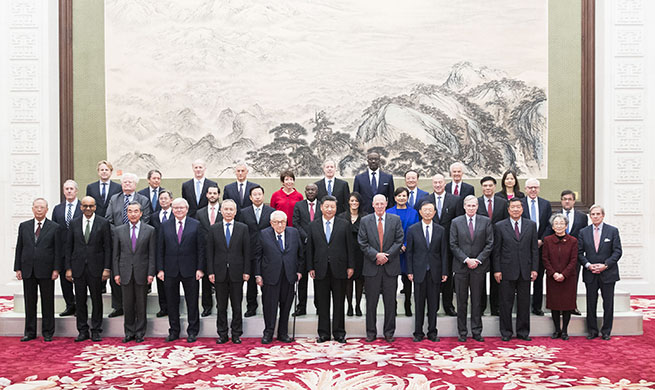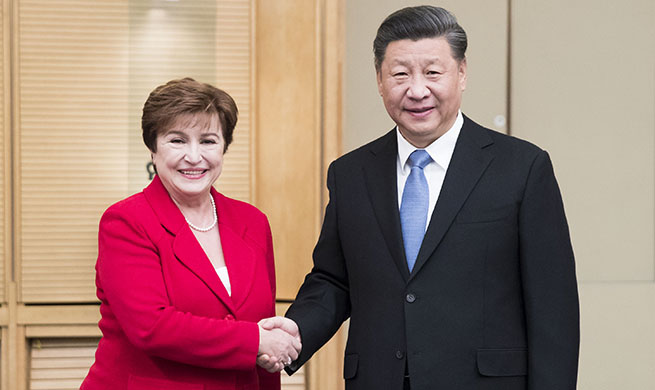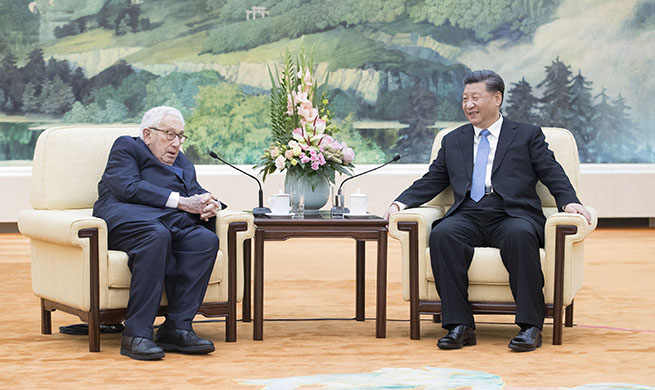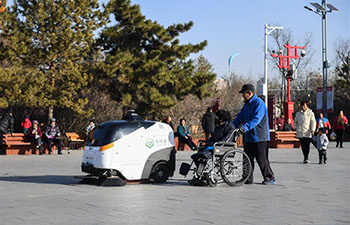by Nick Kolyohin
JERUSALEM, Nov. 22 (Xinhua) -- Israel is in the process of making a national plan to become one of the most advanced countries in the field of artificial intelligence (AI), experts said.
"We are now making a national plan that will be submitted to the government to make Israel, within five years, one of the top five leading countries in the world in artificial intelligence technology," Isaac Ben-Israel, head of an Israeli team on formulating a national AI plan, told Xinhua.
The first Israeli AI week was held at the University of Tel Aviv, which organized the event with Israel Innovation Authority.
Ben-Israel was asked by Israeli government to lead, together with professor Eviatar Matania, the national task force, which comprises of hundreds of experts from the industry, government, universities, and defense industry.
After previous success in creating a similar plan for cyber security and his leadership of the Israeli Space Agency, it is a new challenge for Ben-Israel.
Unlike in most of the high-tech fields, Israel started relatively late in the global competition for AI development, and nowadays, it realizes the crucial importance of AI for the future of the country.
The AI Week, the first such international event held in Israel lasted from Monday to Thursday, with the participation of around 3,000 professionals, experts, researchers, and industry representatives who are reshaping AI innovation, according to Ben-Israel.
It is an international forum that discussed the future of this mind-blowing and sometimes even scary technology of the future, which some fear could lead to intelligent machines ruling the humankind.
Nowadays, the AI machines still don't have the ability to think independently as human beings, though it precedes the human brain in doing calculations by far.
AI's fast development sometimes raises moral and legal questions that the humans never had to think about before.
One of the issues is the programming of self-driving cars, due to the ability of the AI system on th cars to predict the consequences of inevitable car accidents.
Humans need to decide what are the moral choices the self-driving cars should make when it causes fatal crashes.
Who should the cars save and who would be hurt by the car accidents could have multiple outcomes depending on the choice by the AI system.
Ben-Israel said that such issue is more complex than technological challenges.
"Computer technology generally is developed to make our lives better, faster, more efficient, but still, people have to overcome the natural fear of the unknown new technology," he said.
Ben-Israel, as well as other participants of the event, called for "international cooperation" in this respect.
Ami Appelbaum, chairman of the Board of Israel Innovation Authority and chief scientist of the Ministry of Economy and Industry, told Xinhua that the combination of enormous amounts of data and unprecedented computing abilities provides the power to affect dramatically many aspects of life in many different fields.
Israel is looking for state and private collaboration at the level of development, academic research, implementation, and working with multinational companies on exploring the opportunities in the AI marketplace.
On the size of the investment and capital, Israel is far from being competing countries like the U.S. or China, he said.
However, Israel has multiple unique technologies that are out of the box thinking which make a big impact, he said, noting Israel leads the world in the computing and data processing filed.
Although many are afraid of hostile AI, Appelbaum is relaxed. "Will it control us or will we control it, that's a matter of a humankind decision, governments' decisions," he said.
"We will control ourselves, but we will improve our standard of living, medical services, agriculture, education and more by AI," said Appelbaum.
He said that, if humans will manage the risk, "then we will all benefit from that."
Appelbaum believes acquiring the ability of AI to imitate humankind's way of thinking is just "a few years away from us."
Irina Orssich, team leader for AI at the Technologies and Systems for Digitising Industry unit within the European Commission, the executive branch of European Union, told Xinhua that AI offers a lot of possible benefits to the human society by making our world a better place with possible applications in medicine production, tackling climate change, automated transport, and so on.
EU looks as well into the challenges posed by the AI development, in terms of the socio-economic impact, skills, jobs, legal and ethical questions, what could be the limitations on AI, Orssich said.
The EU plans to, in the coming months, propose a legal framework over the AI issue.
"If we want AI to be employed worldwide, we also need to find common rules and a consensus on the limits of AI," said Orssich.

















